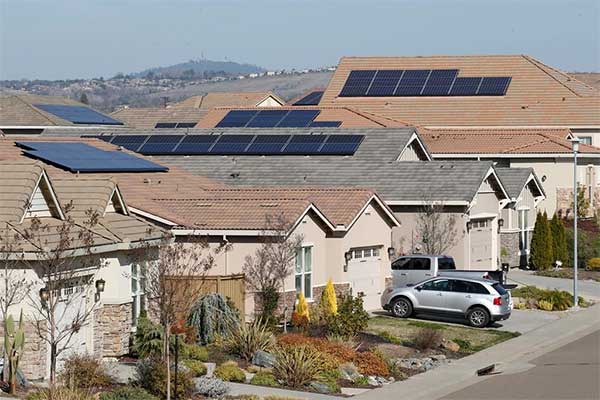Officials in California voted to allow Sacramento-area developers to build homes that don’t come equipped with solar panels. The move, some worry, would undermine the state’s first-in-the-nation home solar requirement program.
Under the California solar mandate program, a large portion of new housing in the state is required to have rooftop solar added during construction.
The law aims to rapidly expand renewable energy use and more quickly transition away from fossil fuels that contribute to global warming.
Now, a newly approved proposal from the Sacramento Municipal Utility District (SMUD) allows home builders to take credit for electricity generated by off-site solar farms, instead of constructing houses with rooftop solar panels.
SMUD, a public power agency, plans to make enough off-site solar power available to serve all demand from new residential construction.
At the time of construction, developers would enter into a 20-year agreement with SMUD to produce solar power at one of its facilities. In return, those homes would be part of the SMUD SolarShares program, enforced by community codes and restrictions.
SMUD has guaranteed each home in the program a credit of $10 per kilowatt-hour per year, which amounts to about $40 per year, or $800 over the life of the 20-year contract.
Critics countered that the whole point of the rooftop solar mandate, approved in 2018, was to make clean energy a standard feature of new homes.
Adding that this alternative compliance option would result in significantly lower electricity cost savings for homeowners and would lay the groundwork for other utilities to create similar workarounds.
Others said it guts the state’s new landmark mandate and will lead to other statewide proposals copying Sacramento’s utility. But regulators backed the proposal after support from home builders and lawmakers who said it provides clean energy without raising home prices in a state facing a housing crisis.














Comments